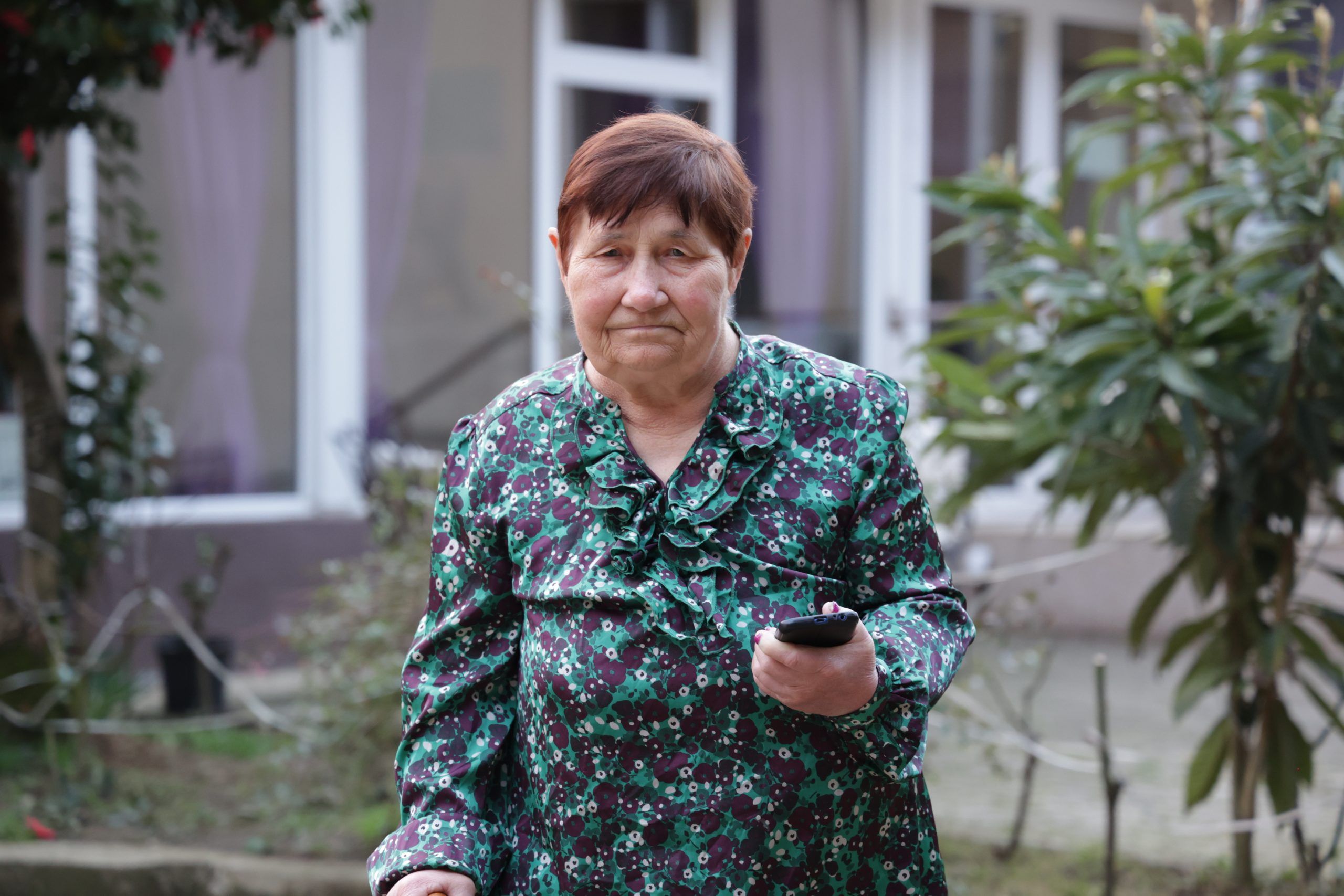
Seventy-five-year-old Roza Gugunishvili restored communication with loved ones after gaining basic IT skills
Seventy-five-year-old Rosa Gugunishvili lives at Anaseuli Nursing Home in Guria. She recalls that before the COVID-19 pandemic, they had many visitors, took part in various activities and she had a great time. After the pandemic set in, life became boring and monotonous. Due to the restrictions in place, Rosa could no longer see her relatives, as visitors were not allowed to visit the nursing home. But despite her age, this feeling of isolation encouraged her to take part in a ground-breaking new project to learn modern technologies in order to communicate with the outside world. This project has helped fill in the communication gap for Anaseuli Nursing Home beneficiaries, who showed a genuine interest in learning new skills during the pandemic, despite their age.
“I served in the army for 25 years and I lived a very active life. Then I was left alone and moved to the nursing home,” Rosa says. “I felt forgotten after the lockdown began, received no information, and frankly was glad if I saw something on the calendar. I didn’t know anything about how to use the phone or the internet and so I couldn’t get in touch with anyone. Then the Learning & Employment Support Centre team came over and taught me how to find people I knew on social media: how to talk to or even see them. Now I can call my relatives and my army friends, whom I haven’t seen for years. We exchange messages, and wish each other a happy birthday. I really don’t know what I would do without the internet,” Rosa adds, noting that apart from communication via social media, she also enjoys using the internet to find interesting information, watch movies and listen to music.
Rosa’s computer skills and internet access training was provided by the Learning & Employment Support Centre of the Young Teachers’ Union, which is fully funded by the European Union. The project developed a curriculum tailored to the beneficiaries’ interests – allowing them to learn basic computer skills – and also provided them with laptops and tablets.
“The beneficiaries wanted to fill in the information gaps and to maintain social contacts. That’s exactly what they needed, especially during the pandemic,” explains Sofo Vasadze, the Centre coordinator for Guria. “So we decided to teach them how to use communication media like Facebook and Google. Now our older population can find information about medications, health and other issues without assistance. When we told them about this initiative, it caused a big stir. We helped those who were interested to sign up and open accounts on social networks. For example, one of the beneficiaries, who didn’t know if that was possible at all, now has about 50 friends on Facebook!” Sofo adds. The training has really changed beneficiaries’ lifestyles. Rosa says that now she is more motivated and wants to learn more things online: “I can see and speak to people I love anywhere in the world at any time. My life has become less monotonous and much more exciting. I’m much happier now,” she smiles.
Read or watch more stories, developed within our campaign “Get Involved, make a difference” about the EU support to civic activism here